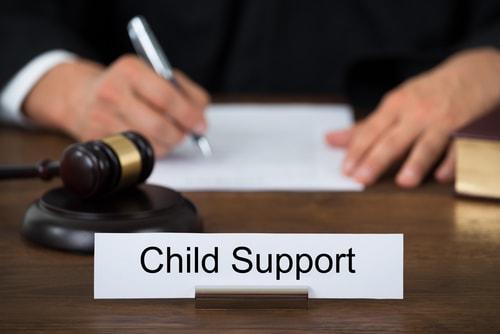Wheaton |
St. Charles |
Sycamore
 630-665-7300
630-665-7300
Recent Blog Posts
Understanding the New Child Support Law in Illinois
 Major revisions have been approved to the way that child support is calculated by courts in Illinois. The topic has been the center of debate for a number of years, and many believe the change is long overdue. Effecitve July 1, 2017, there is an entirely new method of determining how much a supporting parent is required to pay.
Major revisions have been approved to the way that child support is calculated by courts in Illinois. The topic has been the center of debate for a number of years, and many believe the change is long overdue. Effecitve July 1, 2017, there is an entirely new method of determining how much a supporting parent is required to pay.
What Is New About the Law?
The law, which took effect on July 1, amends the existing “percentage of obligor's net income” methodology for child support calculations. Critics have long maintained that such a model is too static, one-sided, and outdated. Under the new law, Illinois will begin using the “income shares” model that is presently in use in many other states.
Under the former law, the way that courts calculated child support for either parent was primarily based on using a fixed percentage of the nonresidential parent's income and the number of children involved in the order. For example, if there was one child to support, the parent without primary residential responsibilities would be expected to pay at least 20 percent of his or her net income in child support. Because those calculations did not take into account the income of the other parent, they produced results, in many cases, that did not sufficiently address the best interests of the children involved.
Tax Issues and Obligations Related to Divorce
 Whether we like it or not, tax issues are a part of any divorce. This is especially complex to navigate when the divorce involves high-income spouses and high-value assets. The stakes are often higher when large marital estates have to be divided, and if it is not done in accordance with relevant tax law, the IRS can take a distressing amount in recompense.
Whether we like it or not, tax issues are a part of any divorce. This is especially complex to navigate when the divorce involves high-income spouses and high-value assets. The stakes are often higher when large marital estates have to be divided, and if it is not done in accordance with relevant tax law, the IRS can take a distressing amount in recompense.
Standard and Complex Questions
Even in an average divorce, there are multiple tax issues that might become apparent. Some of the most common include deciding who will claim the children on future tax returns, determining whether to file as joint/married or single if your proceedings are happening during tax season, answering any residency-related questions, and so on. These same issues often arise in high-value divorces as well, but because the value of the marital estate is higher, it is more common for wealthy couples to discuss such issues beforehand—in a prenuptial agreement, for example. If this is not done, tax considerations may be handled along with the more specific issues at the time of the divorce.
Your Child's Wishes Regarding Parenting Arrangements
 While parents all want to do what is best for their children, including allowing their voices to be heard, sometimes their wishes are not what is in their best interest. Depending on the circumstances, this may also prove to be the case in divorce and parental responsibility proceedings. In many instances, a judge will consider a child's wishes regarding which parent they live with, but a child's wishes are not the deciding factor.
While parents all want to do what is best for their children, including allowing their voices to be heard, sometimes their wishes are not what is in their best interest. Depending on the circumstances, this may also prove to be the case in divorce and parental responsibility proceedings. In many instances, a judge will consider a child's wishes regarding which parent they live with, but a child's wishes are not the deciding factor.
What Does the Law Say?
Illinois law holds that a child's wishes regarding residential living arrangements can be taken into account as long as the child's “maturity and ability to express reasoned and independent preference” is appropriately considered. In other words, the wishes of a child who is better able to express themselves in a manner consistent with them forming an independent opinion will be given more weight than that of a child who simply parrots their parent or older sibling. Generally, this means that older children's opinions will have more impact, but this is not always the case. An extremely articulate younger child might very well have a firm grasp on the situation and could, therefore, be taken more seriously.
Establish Healthy Boundaries During Separation
 The transition from being married to being divorced is not an easy one. You are still technically married but may be living apart from your spouse, and household items are beginning to be divided. Children may begin spending time with both parents separately. There is no perfect way to execute a separation but experts agree that creating healthy boundaries and rules at the beginning of the process can prevent conflict later in the divorce proceedings.
The transition from being married to being divorced is not an easy one. You are still technically married but may be living apart from your spouse, and household items are beginning to be divided. Children may begin spending time with both parents separately. There is no perfect way to execute a separation but experts agree that creating healthy boundaries and rules at the beginning of the process can prevent conflict later in the divorce proceedings.
Be Proactive Instead of Reactive
The best way to avoid conflict with your soon-to-be-ex is to establish rules and boundaries from the very beginning. Sit down with your spouse in a quiet, neutral location and discuss your situation, writing down notes as you go. Consider issues such as:
- Under what circumstances does a spouse have permission to enter the other spouse's residence? It is always better to double check before stopping by at your spouse's residence, even if many of your personal belongings are still there. Tension is high, and surprise visits may create unneeded stress;
Handling Valuable Assets During a Divorce
 Divorce can affect couples from all walks of life, even the financially flush. However, when wealthy people decide to end their marriage, the proceedings can differ somewhat from those who have relatively few assets to divide. For a wealthier couple, there will understandably be a more prolonged discovery period, as well as a focus on ensuring that all assets are properly identified and evaluated.
Divorce can affect couples from all walks of life, even the financially flush. However, when wealthy people decide to end their marriage, the proceedings can differ somewhat from those who have relatively few assets to divide. For a wealthier couple, there will understandably be a more prolonged discovery period, as well as a focus on ensuring that all assets are properly identified and evaluated.
What Is Equitable Distribution?
The primary issue in high-value divorces is that because so much is at stake, each party is more likely to dig in and fight for what they see as their rightful share. In some cases, however, it is not the spouses but the court that decides what is an appropriate distribution. Illinois is an equitable distribution state, meaning that property is not divided 50/50 as it would be in a community property state. Rather, experts help evaluate each asset so that each party may receive a share that is equitable and fair based on the circumstances of the situation.
Options for Dealing With an Unfavorable Family Court Outcome
 Sometimes, cases do not work out exactly the way we think they will. You may not receive the full amount of maintenance or child support that you were seeking, or you might not receive the parenting time you desired. While some decisions cannot be challenged, many if not most can be appealed or petitions may be filed to request reconsideration. In short, in most cases, all is not lost if you receive a denial or other unsatisfactory result.
Sometimes, cases do not work out exactly the way we think they will. You may not receive the full amount of maintenance or child support that you were seeking, or you might not receive the parenting time you desired. While some decisions cannot be challenged, many if not most can be appealed or petitions may be filed to request reconsideration. In short, in most cases, all is not lost if you receive a denial or other unsatisfactory result.
Appeals and Motions
There are two primary methods through which a request to reconsider may be filed in Illinois. Which one you should use depends on the nature of the perceived problem with your case. If you believe that the judge made an error of law, and your attorney raised the proper objection at the proper time, it is appropriate to file an appeal. The Illinois Supreme Court Rules govern the relevant procedure, and the requirements are strict. You must file your appeal within 30 days of the final judgment's entry (or the entry of the relevant order, in some situations), and the record is restricted to questions of law. You may not simply re-litigate your case in a new courtroom.
What Is Legal Separation?
 Divorce is a difficult decision to make. Sometimes, a couple may hesitate on pulling the proverbial trigger even though they are well aware that their marriage is in trouble. If you are in this situation, a legal separation may be an idea, as you receive many of the benefits of divorce without giving up all of the benefits of being married just yet. Be advised, however, that most people “separate” colloquially, meaning that they take no steps to protect their assets like bank accounts or titles to vehicles. Legal separation, by comparison, has specific procedures that must be followed.
Divorce is a difficult decision to make. Sometimes, a couple may hesitate on pulling the proverbial trigger even though they are well aware that their marriage is in trouble. If you are in this situation, a legal separation may be an idea, as you receive many of the benefits of divorce without giving up all of the benefits of being married just yet. Be advised, however, that most people “separate” colloquially, meaning that they take no steps to protect their assets like bank accounts or titles to vehicles. Legal separation, by comparison, has specific procedures that must be followed.
Changes to the Law
Before changes were enacted in 2016, legal separation was used by many couples who did not have sufficient grounds to divorce, or by couples whose religion either prohibited or frowned upon divorce. With the abolition of fault grounds, fewer people use the procedure because obtaining a divorce on the ground of irreconcilable differences is much easier than it was in the past. However, it is still the choice for many who simply cannot make the decision to divorce for whatever reason.
Parental Alienation Can Cause Serious Problems
 In cases where the well-being of a child is at issue, sometimes parents will resort to inappropriate measures. Illinois law recognizes one of the most insidious—known as parental alienation—as a possible reason to adjust a parenting plan or custody arrangement. Many people, however, do not understand parental alienation or how to recognize the signs of it.
In cases where the well-being of a child is at issue, sometimes parents will resort to inappropriate measures. Illinois law recognizes one of the most insidious—known as parental alienation—as a possible reason to adjust a parenting plan or custody arrangement. Many people, however, do not understand parental alienation or how to recognize the signs of it.
Definitions and Symptoms
While there is currently some debate as to whether parental alienation syndrome (PAS) is a true disorder, this question is all but irrelevant in the legal system, where the effects of parental alienation are very real. Parental alienation, in legal terms, occurs when a child is influenced or brainwashed into believing the worst of one parent, most often by the other parent—though sometimes by a grandparent or someone else close to the alienator. The ultimate goal is usually to get the child to totally reject the other parent. This most often happens during custody or divorce proceedings, though it can, in theory, occur at any time in a child's life.
Collecting Child Support in Illinois
 In many cases, receiving court-ordered child support is the difference between being able to pay the bills and being in financial trouble. Sometimes, however, child support simply does not get paid. Whether the failure to pay is the result of malicious reasons or because unexpected expenses occurred for the supporting parent, you may have to go to court to obtain what you are owed.
In many cases, receiving court-ordered child support is the difference between being able to pay the bills and being in financial trouble. Sometimes, however, child support simply does not get paid. Whether the failure to pay is the result of malicious reasons or because unexpected expenses occurred for the supporting parent, you may have to go to court to obtain what you are owed.
Most Common Methods
The most common way that noncompliant parents are made to pay their support obligations is to the State Disbursement Unit (SDU), via automatic income withholding (AIW), under the federal Family Support Act. Illinois has adopted a version of this law that is functionally identical to the federal statute, though other states have made modifications. Income withholding applies to divorce decrees that have both child support and spousal support or that only discuss child support. In other words, you cannot request income withholding through the SDU, if your former spouse is behind on maintenance payments only, at least not in Illinois. AIW generally takes effect automatically unless the parties specifically agree to another form of recourse in the event that back child support has accumulated.
Who Pays What After a Divorce?
 When a couple decides to divorce, it is not only assets that must be divided during the proceedings, but also any marital debt that has accrued. As with assets, a family court will generally divide debts along equitable lines, meaning that the person who makes more or who has more assets will often be tasked with managing more debt, whether they originally incurred it or not. It may set your mind at ease to better understand the rationale judges use to make such determination so you can know if you are being unfairly saddled with too much debt.
When a couple decides to divorce, it is not only assets that must be divided during the proceedings, but also any marital debt that has accrued. As with assets, a family court will generally divide debts along equitable lines, meaning that the person who makes more or who has more assets will often be tasked with managing more debt, whether they originally incurred it or not. It may set your mind at ease to better understand the rationale judges use to make such determination so you can know if you are being unfairly saddled with too much debt.
Debts in Divorce
When discussing marital assets and debts, equity is the watchword - Illinois is an equitable distribution state, as opposed to a community property state, which means that the courts will divide both marital assets and debts according to each spouse's ability to pay and the income they make. Generally, it is the fairest approach, as it ensures that each debt is assigned to the person who is most likely able to pay it. It most cases, the debt will follow the asset. For example, if one spouse is awarded a vehicle that still has a balance due on a loan, that spouse will take responsibility of both the ownership of the vehicle and payment of the loan.


 Read More
Read More





